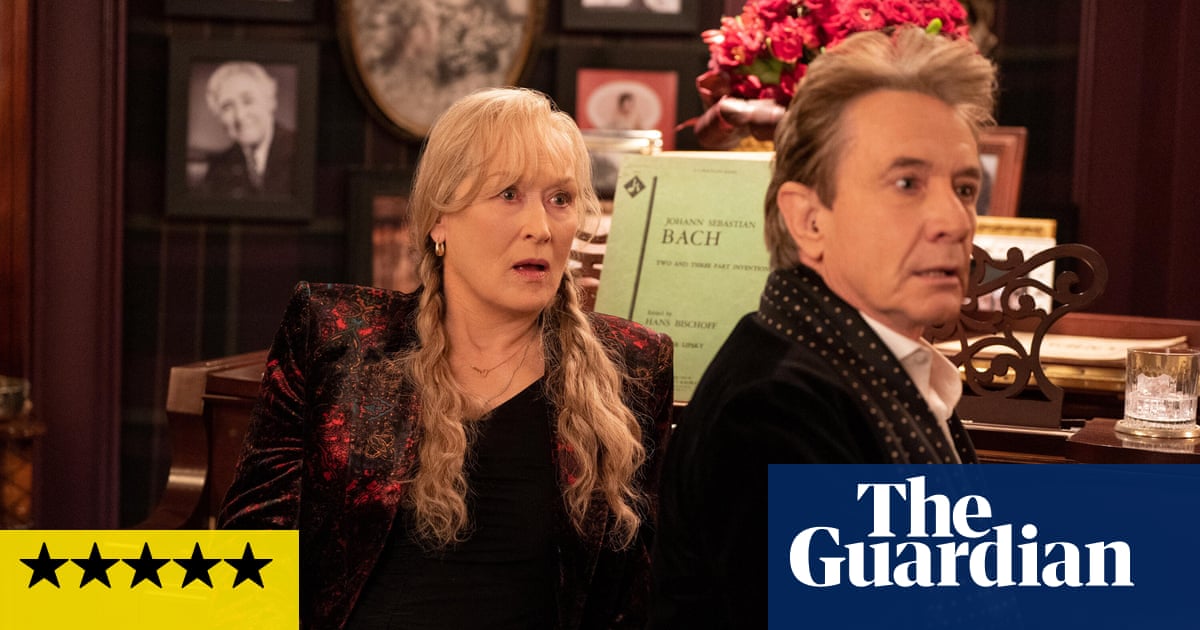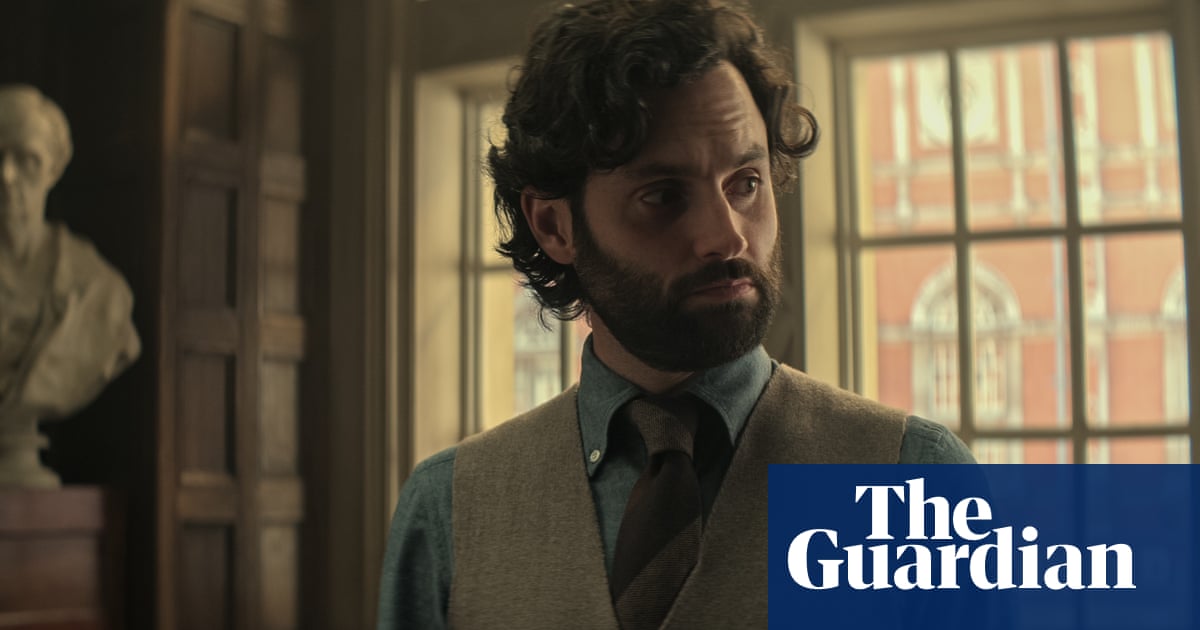
You (Netflix) somewhat backed itself into a corner from the beginning. The thriller, which always tried to balance its darker impulses with a substantial dose of black comedy, started out as the saga of Joe Goldberg (Penn Badgley), a handsome, literature-loving loner and stalker. Goldberg had the unfortunate habit of murdering the women he became obsessed with, as well as anyone who stood in his way (though, to his credit, he did often feel bad about it). It is a premise that holds even less appeal now than it did at the time, though its twists and turns, and mordant wit, had the effect of reluctantly hooking this viewer. Much like Joe, however, I did often feel bad about it.
Its second season took the conceit even further, moving Joe away from multiple crime scenes in New York, and depositing him on the west coast of America, where – spoiler alert – he stalked a woman called Love (it really ramped up the theatrics) who turned out to have the same murderous desires as him. Joe almost killed her, until Love turned out to be pregnant with his child, and the new third season sees the couple attempt to become model parents in a white-picket-fence hellscape in the California suburbs, populated largely by mumfluencers and tech billionaires.
It is a smart move, and solves some of the problems You has had thus far. For its first two seasons, it took aim at what we used to call hipsters – both the arty, literary New York types, and the airy spiritualism of its Los Angeles counterparts. But I found it hard to reconcile its satirical bite with its unsteady portrait of Joe as both villain and gorgeous, brooding, sympathetic lead. By turning its focus on parenthood, marriage and what it means to be “normal”, it finds a more confident groove. At its best, it reminded me of the old John Waters film Serial Mom, in which Kathleen Turner plays a housewife on the rampage against rudeness and indecency.
Parenting is challenging for Joe and Love. Joe wanted a daughter, so he could avoid passing on his violent tendencies to a son, but baby Henry arrived regardless, and now they are not so much co-conspirators as two people left hanging in a world they despise. Whether they can and should fit in is one of You’s more philosophical threads, and the scenes in which the pair sit through Esther Perel-esque couples therapy are clever, not least because they are never quite able to talk about what it is they would actually like to discuss: the real chance that either might murder the other.
There are are moments that threaten a disappointing return to Joe’s bad old ways, but mostly Love is left to her transgressions, with Joe transformed into a sort of sensible sidekick, roped in when his criminal mastery is most needed. It turns out that Love’s more impulsive tendencies are not as easy to manage as she had thought, and the two of them are soon caught up in a Gone Girl-style mystery. However, this being You – which never knowingly opts for subtlety – the result is more like Gone-Too-Far Girl.
As always, it is defiantly tasteless (one thorny “dilemma” is resolved by a character’s suicide, and there is a romantic subplot involving a teenager and an older woman), but in turning up the mockery of “the obscene one per cent-er bubble” that Joe and Love now inhabit, it at least finds more space to explore its better themes. These include: the surveillance culture most of us willingly sign up to via social media and technology; anti-vaxxers and the world of wellness; and primal masculinity and male bonding.
As it does the impossible and wiggles out of its initial premise, You is becoming more self-aware – and it’s all the better for it.












